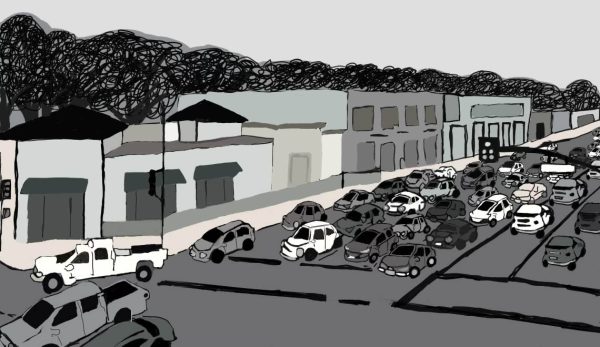Elections, Claire-ified
August 26, 2021
When students submit their ballots for prefect elections in the spring, they will make two reasonable assumptions: their votes will be counted, and the candidates with the highest number of votes will win the election. Imagine what would happen if, upon receiving the election results, voters learn that these assumptions were misguided.
What would happen if the incumbent council publicly threw out students’ votes and announced their own set of results? Nobody would even consider reading through the Honor Code to see if this model of election could be justified, because it goes against our most basic understanding of democracy.
Unfortunately, this scenario is not hypothetical, and it is happening in a much larger and more consequential election: the 2024 presidential race.
Americans are witnessing the beginning of a shift in right-wing politicians’ strategy to win elections by tearing away at voting rights and standard procedures that aim to make voting accessible.
After the 2020 presidential election, conservative judges and politicians began to popularize an interpretation of the constitution that would allow conservative state legislatures to easily overturn the results of elections.
This “independent state legislature” doctrine suggests that these governing bodies should have a staggering amount of power over the entire elections process. The doctrine gives legislatures the ability to determine that election administrators and courts have violated the legislature’s rules and choose their own set of electors for the state, regardless of who voters selected.
State legislatures have always established the basic rules of elections, and that was the extent of their oversight. They let election administrators plan the details of the vote and allowed state courts to decide the meaning of their rules. The United States Constitution allows state legislatures to determine the “time, place and manner” of elections, and until now, this summed up their responsibilities.
The independent state legislature doctrine throws out this fair and effective elections process by making baffling legal claims that would be rejected by any average high school history student.
But somehow, the idea that a state legislature should be able to overhaul a presidential election by discounting votes is gaining serious traction. Four supreme court justices supported this idea during the 2020 election season. Republican Governor of Montana Greg Gianforte signed a bill requiring state legislatures to approve governors’ changes to election procedures. In Arizona, Republicans tried to pass a bill that would have allowed the state legislature to rescind the certification of presidential electors with a simple majority vote.
Immediately following the 2020 election, the right-wing political strategy consisted of a confusing mixture of conspiracy theories and angry revolts culminating in the insurrection at the U.S. Capitol. Trump and his allies attempted to prove voter fraud without any evidence in a ludicrous effort led by an unhinged CEO of a pillow company. They falsely claimed that Italian satellites subverted the election, and they preyed on the vulnerabilities of voters who are easily influenced by conspiracy theories.
Many Americans assume that after electing President Joe Biden, a paragon of reason and stability, the fight to preserve democratic institutions is over. This assumption could not be further from the truth.
By branding conservatives’ strategy as nonsensical, Democrats have set themselves up to ignore another baffling attack on voting rights that is disguised as a legitimate interpretation of the constitution. This perceived legitimacy is dangerous, because unlike conspiracy theories, it can have a massive impact on policy-making.
The proponents of the independent state legislature doctrine know that if they can get us to engage in seemingly rigorous constitutional debates, they can make an absurd concept look like a serious policy option. Thus, politicians must be careful not to respond to claims about state legislatures’ power in a way that bolsters their validity.
We must immediately call out this strategy for what it is: a dangerous and baseless power grab that discredits millions of votes. If we do not, we risk losing any chance at saving our democracy.






































Elizabeth Johnstone • Sep 1, 2021 at 9:54 pm
Great article!